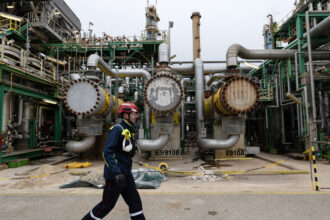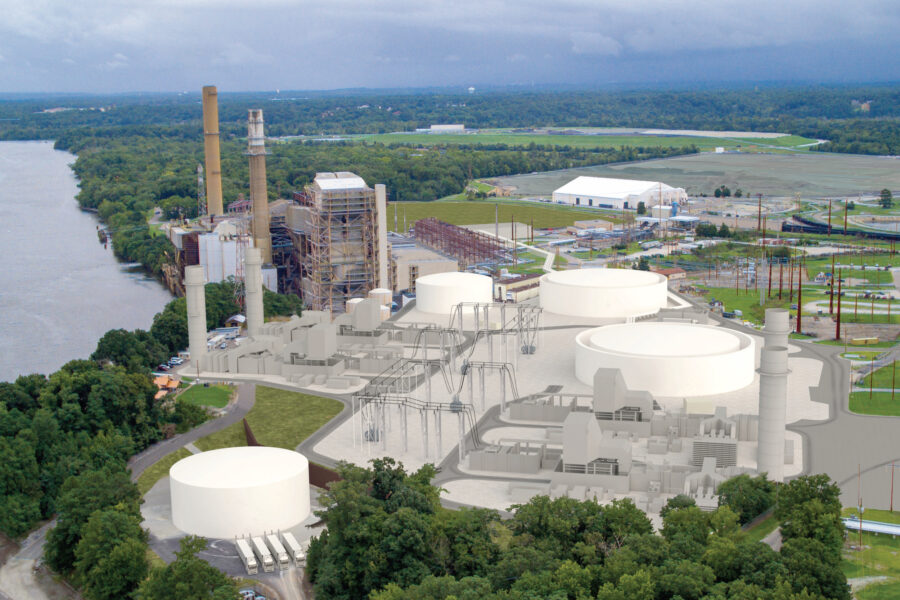Stay informed about the latest climate, energy and environmental justice news by email. Sign up for the ICN newsletter.
In a setback for the fossil fuel industry, federal energy regulators rejected a petition from the Constitution Pipeline Company to overturn New York State’s denial of a water permit for a proposed natural gas pipeline. Without the permit, the pipeline can’t be built.
In a decision on Jan. 11, the Federal Energy Regulatory Commission (FERC) denied the request from the company to revive the proposed 125-mile Constitution Pipeline from the Marcellus Shale in Pennsylvania to Upstate New York.
The decision comes during one of the largest expansions of natural gas infrastructure in U.S. history, a buildout that critics say is driven more by the financial interests of gas and electric companies than market demand.
Officials with New York’s Department of Environmental Conservation (DEC) rejected the water quality permit for the pipeline in April 2016 stating, in part, that it failed to meet the state’s water quality standards. Constitution challenged the decision on the grounds that the state agency did not act within a reasonable time.

The federal commission, in rejecting the company’s challenge, wrote: “The record does not show that New York DEC in any instance failed to act on an application that was before it for more than the outer time limit of one year.”
The company first filed for a water quality permit with New York DEC in August 2013, then withdrew and resubmitted its application in 2014 and again in 2015 at the DEC’s request.
“States and project sponsors that engage in repeated withdrawal and refiling of applications for water quality certifications are acting, in many cases, contrary to the public interest and to the spirit of the Clean Water Act by failing to provide reasonably expeditious state decisions,” the federal commission wrote. “Even so, we do not conclude that the practice violates the letter of the statute.”
In September, FERC overruled New York’s decision to deny a water quality permit for a different natural gas pipeline. In that case, the federal commission—whose makeup has since changed, with two new members appointed by President Donald Trump—ruled that the state, which took nearly two years to make a decision, had not acted in a reasonable amount of time.
New York Gov. Andrew Cuomo praised FERC’s latest decision.
“No corporation should be allowed to endanger our natural resources, and the Constitution Pipeline represented a threat to our water quality and our environment,” Cuomo said in a statement. “I commend the Federal Energy Regulatory Commission for ruling in favor of New York’s efforts to prevent this project from moving forward.”
Williams Companies, one of the companies behind the pipeline project, said it will appeal FERC’s decision.
“We are planning to seek rehearing and, if necessary, appeal of this decision in order to continue to develop this much-needed infrastructure project,” Chris Stockton, a spokesman for the company said in a statement. The companies behind the Constitution Pipeline had also sued over the water permit, but a federal appeals court panel sided with the state in August.
About This Story
Perhaps you noticed: This story, like all the news we publish, is free to read. That’s because Inside Climate News is a 501c3 nonprofit organization. We do not charge a subscription fee, lock our news behind a paywall, or clutter our website with ads. We make our news on climate and the environment freely available to you and anyone who wants it.
That’s not all. We also share our news for free with scores of other media organizations around the country. Many of them can’t afford to do environmental journalism of their own. We’ve built bureaus from coast to coast to report local stories, collaborate with local newsrooms and co-publish articles so that this vital work is shared as widely as possible.
Two of us launched ICN in 2007. Six years later we earned a Pulitzer Prize for National Reporting, and now we run the oldest and largest dedicated climate newsroom in the nation. We tell the story in all its complexity. We hold polluters accountable. We expose environmental injustice. We debunk misinformation. We scrutinize solutions and inspire action.
Donations from readers like you fund every aspect of what we do. If you don’t already, will you support our ongoing work, our reporting on the biggest crisis facing our planet, and help us reach even more readers in more places?
Please take a moment to make a tax-deductible donation. Every one of them makes a difference.
Thank you,














